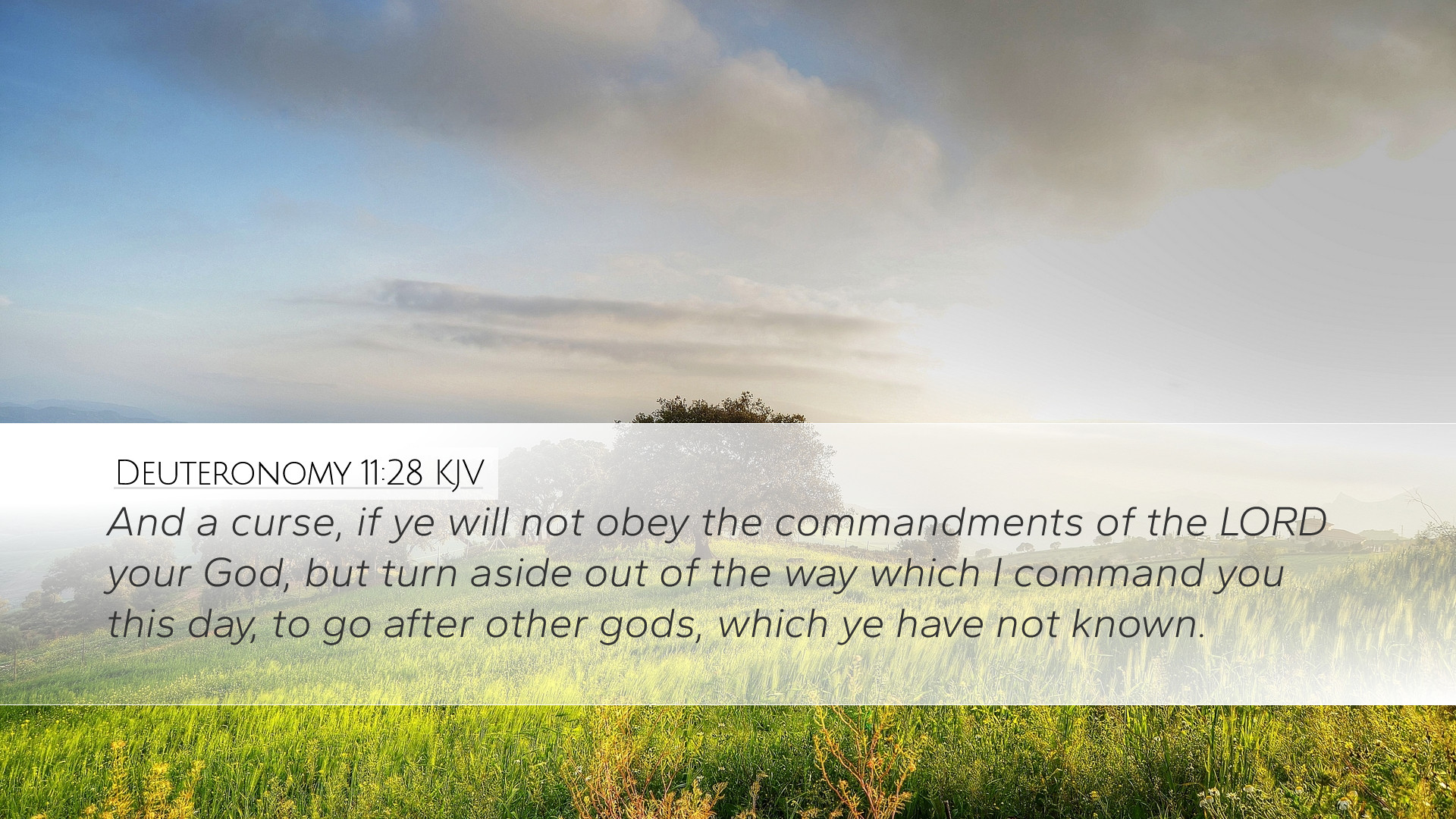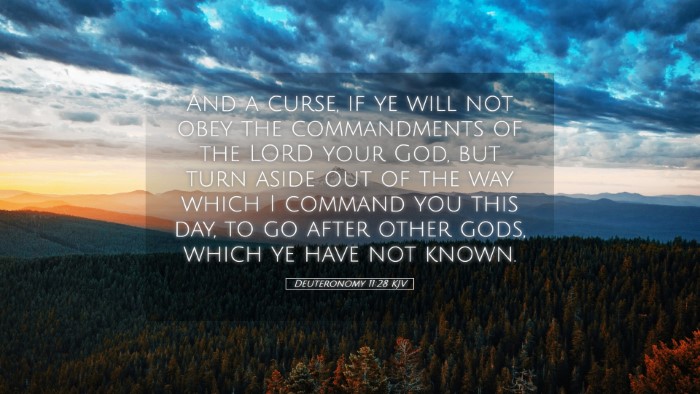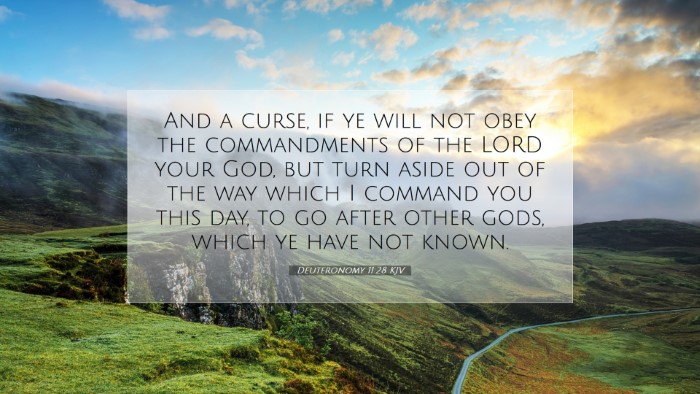Commentary on Deuteronomy 11:28
Verse: "And a curse, if ye will not obey the commandments of the Lord your God, but turn aside out of the way which I command you this day, to go after other gods which ye have not known."
Introduction
The verse from Deuteronomy 11:28 comes from a critical part of Moses’ discourse to the Israelites as they were on the verge of entering the Promised Land. This passage emphasizes the stark choice between blessings and curses that results from obedience or disobedience to God’s commands.
Summary of Key Themes
- Covenantal Relationship: The Israelites were commanded to maintain a covenant relationship with God, which included following His laws as a foundation for national stability and spiritual integrity.
- Blessings and Curses: The duality of blessings for obedience and curses for disobedience encapsulates the principle of reaping what one sows (Galatians 6:7).
- Warnings Against Idolatry: This warning against “other gods” underlines the seriousness of idolatry in breaking the covenant with God.
Commentary Insights
Matthew Henry Commentary
Matthew Henry articulates that God's blessings are contingent upon the people's fidelity to His commandments. He states that the blessings promised are comprehensive, affecting not only the individual but the entire nation. In stark contrast, the curse represents a complete withdrawal of God's favor, which would lead to calamity and destruction. Henry emphasizes that the choice laid before Israel was not merely for their benefit but served a greater purpose: “that thou mayest live and multiply, and go in and possess the land.”
Albert Barnes Notes
Albert Barnes elaborates on the severity of the warnings given in this passage. He points to the fate of the people who turn away from God's decrees, underscoring that such disobedience does not just alter personal fate but endangers the collective wellbeing of Israel. Barnes emphasizes that the term "other gods" is particularly insightful as it reveals the innate human tendency to seek false security in idols, which are fundamentally powerless. He asserts that God's commandments are a safeguard against such spiritual demise, framing disobedience as spiritually hazardous.
Adam Clarke's Commentary
Adam Clarke presents a theological reflection on the nature of the curses mentioned. He emphasizes that these curses are not just arbitrary punishments but the natural consequences of turning away from God. Clarke notes that the term "turn aside" implies a deliberate choice that leads one away from the established path of righteousness. Moreover, he argues that the reference to “gods which ye have not known” denotes a deep concern about the dangers of embracing foreign influences that threaten the purity of Israel's worship.
Spiritual Application
This verse serves as a solemn reminder for all believers, particularly in pastoral and theological contexts, that their faithfulness is directly tied to their commitment to God's commands. The implications stretch beyond ancient Israel and speak to the contemporary church's responsibility to uphold the teachings of Christ against the backdrop of a pluralistic society.
Furthermore, this passage invites a deeper examination of what it means to serve God faithfully. Disobedience may not always involve blatant rebellion against God; often, it is the subtler forms of neglect or distraction that lead believers away from true devotion. Therefore, the exhortation in Deuteronomy 11:28 challenges pastors and scholars alike to consider how they might actively guide their congregations towards a life of love and obedience.
Conclusion
In conclusion, Deuteronomy 11:28 encapsulates significant theological principles of obedience, divine blessings, and the severe consequences of idolatry. It serves both as a warning and an encouragement to hold fast to the ways of the Lord. The insights from historical commentaries provide a rich tapestry of understanding that pastoral leaders, students of theology, and lay believers can draw upon in their journey of faith.


